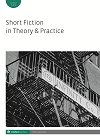-
oa Sounding diasporic dislocation: The object voice in postcolonial short stories
- Source: Short Fiction in Theory & Practice, Volume 11, Issue More than Meets the Ear: Sound & Short Fiction, Jun 2021, p. 11 - 25
-
- 13 Jul 2020
- 09 Oct 2020
- 01 Jun 2021
Abstract
Jacques Lacan conceives of the voice as more than meets the ear: that is, as an objet a that must be subtracted from the acoustic field to preserve the coherence of reality as a symbolically constructed order in which subjects are inserted and from which they derive a sense of identity. Disruptive manifestations of the object voice are frequent in the modernist and postmodernist British short story, a form which, on account of its brevity and limited scope, renders more sharply the traumatic nature of such episodes, which thus become more memorable and engaging for readers. The short story, likewise, is an apt vehicle for postcolonial and diasporic subjectivities characterized by the tensions and psychic distress provoked by their liminal location between different cultures and their heterogenous and often conflicting interpellations. After an introductory part which elaborates on the interrelations between object voice, the short story genre and the postcolonial subject, this article examines two recent stories by Koye Oyedeji (‘Postscript from the Black Atlantic’) and Diriye Osman (‘Earthling’), in which existential conflicts become so acute that they trigger aural hallucinations, which determine the central characters’ predicament in the context of the migrant diaspora in Britain.
Funding
- Research carried out in the project Intersections (Award FEM2017-83084-P – AEI/FEDER)
- Competitive Reference Research Group Discourse and Identity (Award GRC2015/002 GI-1924 – Galician Regional Government)



